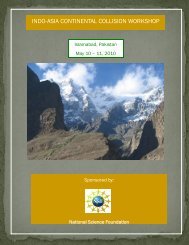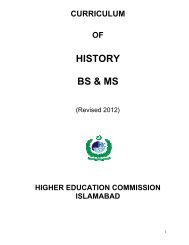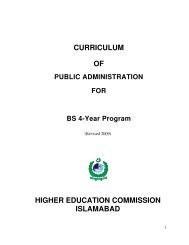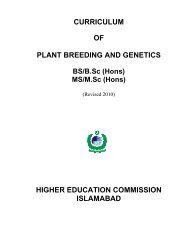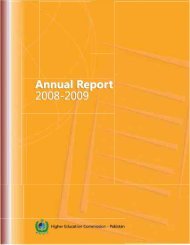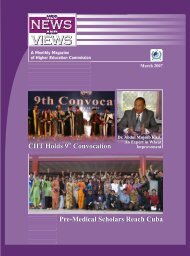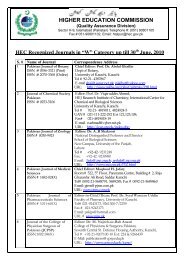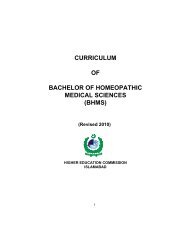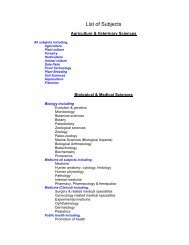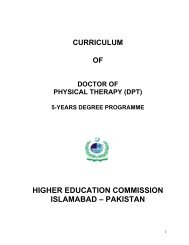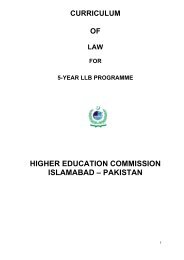Ethics Dilemmas in Qualitative Research - Higher Education ...
Ethics Dilemmas in Qualitative Research - Higher Education ...
Ethics Dilemmas in Qualitative Research - Higher Education ...
Create successful ePaper yourself
Turn your PDF publications into a flip-book with our unique Google optimized e-Paper software.
<strong>Ethics</strong> <strong>Dilemmas</strong> <strong>in</strong> <strong>Qualitative</strong> <strong>Research</strong><br />
<strong>Research</strong> is mostly undertaken to<br />
generate knowledge and<br />
contribute to scholarship, policy,<br />
practice and generally to the well<br />
be<strong>in</strong>g of the people who<br />
participate <strong>in</strong> it. Hence, <strong>in</strong> a<br />
deliberation on ethical issues <strong>in</strong><br />
research a polarisation of research<br />
<strong>in</strong>to qualitative and quantitative is<br />
not particularly required because<br />
ethical issues mostly cut across<br />
the qualitative-quantitative divide.<br />
Hav<strong>in</strong>g said that, certa<strong>in</strong><br />
qualitative research approaches<br />
such as action research,<br />
biography, phenomenology and<br />
ethnographic methods do pose<br />
complex challenges to an ethical<br />
conduct of research and therefore<br />
merit a closer scrut<strong>in</strong>y.<br />
Sound research is a moral and ethical endeavour and should be concerned with ensur<strong>in</strong>g that the <strong>in</strong>terests of those<br />
participat<strong>in</strong>g <strong>in</strong> a study are not harmed as a result of research be<strong>in</strong>g done. Typically universities and research<br />
<strong>in</strong>stitutions lay down pr<strong>in</strong>ciples and guidel<strong>in</strong>es for conduct<strong>in</strong>g research <strong>in</strong> an ethically appropriate manner and<br />
require the researchers to obta<strong>in</strong> approval from ethics committees or equivalent.<br />
A quick survey of the websites of some major research bodies and universities (e.g. Aga Khan University, American<br />
Anthropological Association, American <strong>Education</strong>al <strong>Research</strong> Association, British <strong>Education</strong>al <strong>Research</strong> Association)<br />
shows that there are four or five key ethical pr<strong>in</strong>ciples that are common across the board. These <strong>in</strong>clude:<br />
a) Informed and voluntary consent;<br />
b) Confidentiality of <strong>in</strong>formation and anonymity of research participants;<br />
c) No harm to participants, beneficence and reciprocity.<br />
Typically associated with these pr<strong>in</strong>ciples and guidel<strong>in</strong>es are detailed procedures which the researchers are<br />
expected to follow and provide evidence to the review committee. These pr<strong>in</strong>ciples and procedures of an ethical<br />
engagement with a research study are laid out with the best of <strong>in</strong>tentions to protect participants from malpractices<br />
and breach of ethics. However, the approach is taken from ma<strong>in</strong>ly a cl<strong>in</strong>ical medical research perspective with<br />
concomitant view of epistemology and ontology. Hence, it is assumed that there is a well stated hypothesis which is<br />
to be tested, the relationship between the researcher and researched is clearly divided and bounded, and it is<br />
possible to outl<strong>in</strong>e the potential risks and benefits <strong>in</strong> some detail prior to the study.<br />
On the contrary <strong>in</strong> research undertaken from qualitative, naturalistic position, ethnographic methods are employed<br />
which require participant observation, open ended or semi structured <strong>in</strong>terview, thick descriptions and often a longterm<br />
engagement <strong>in</strong> the field. The researchers are the primary <strong>in</strong>struments of research and develop relationship<br />
with research participants so that “emic” <strong>in</strong>sights may be gleaned <strong>in</strong> the social phenomenon be<strong>in</strong>g studied. Mostly,<br />
there are broad and guid<strong>in</strong>g research questions and not testable hypothesis. <strong>Research</strong> from this perspective<br />
encourages, evolv<strong>in</strong>g understand<strong>in</strong>g and flexibility to go <strong>in</strong>to new or different directions with<strong>in</strong> the broad<br />
2



